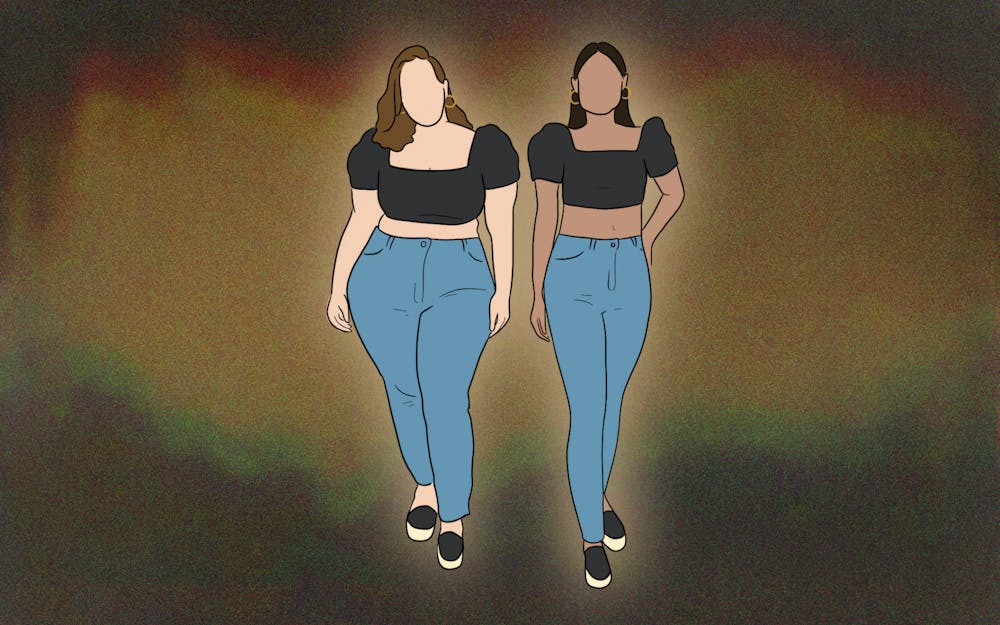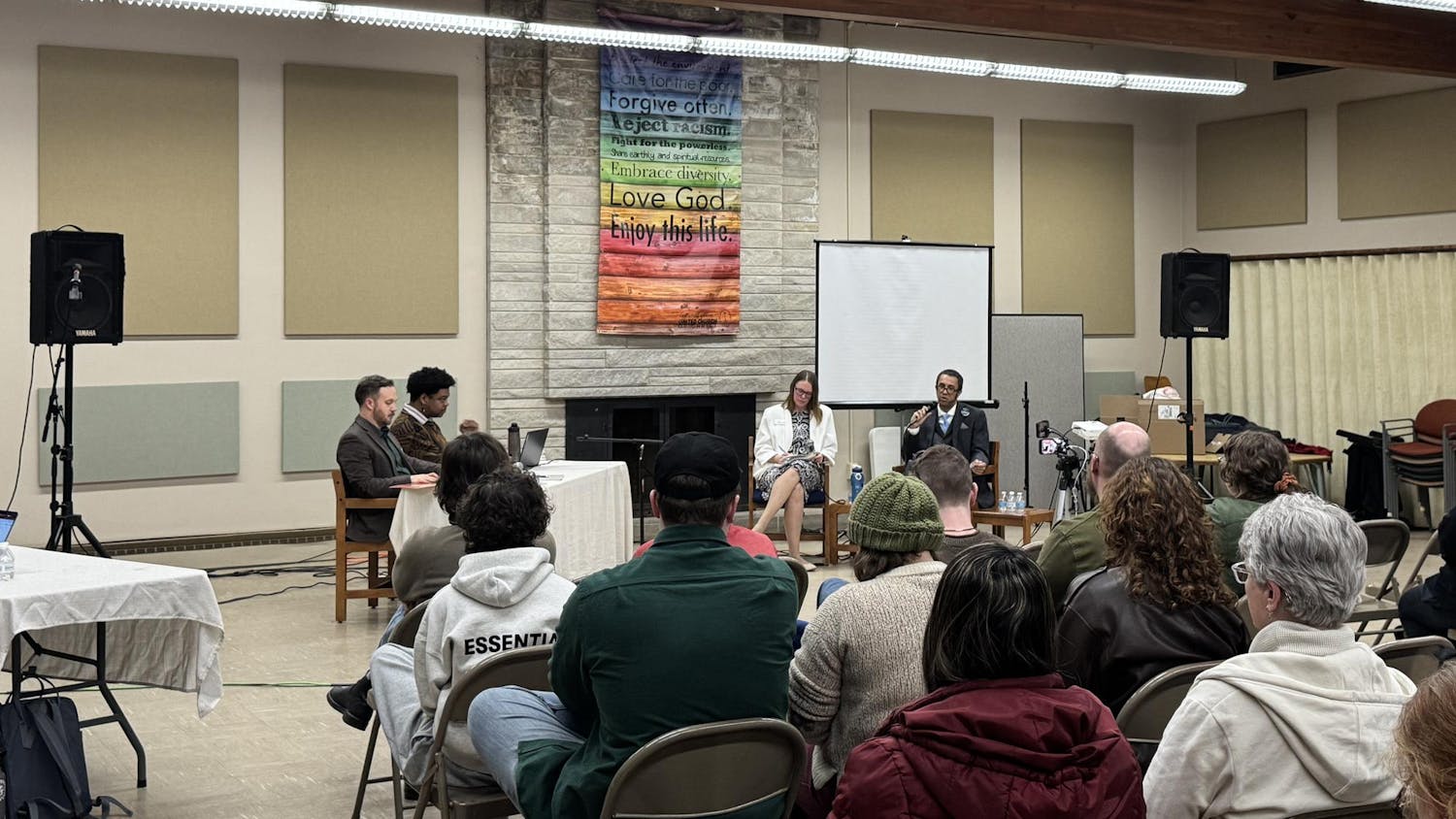As a child, I hated the word “fat.” It made me feel ugly and gross. It made me feel like a failure – the word acted as a catch-all for the descriptors meant to shame me.
If I had a dollar for every time I heard “You’re not fat, you’re beautiful,” in response to a statement I made about my fatness, I think I’d be rich. At least, a couple of $100 richer than I currently am.
I’ve been taught – we've been taught – that fat and beautiful are mutually exclusive.
But the reality is that fat is just another descriptor that has a horrible, societally held connotation. Fat does not have to signify bad or disgusting or lazy or immoral. Fat can be just fat.
[Related: OPINION: ‘Fat Funny Friend’ sparks a necessary conversation]
Unfortunately, even Google holds the same, outlandish connotation of the word. Its example of the usage of fat as an adjective is “the driver was a fat, wheezing man,” which equates fatness to a lack of health. Fatness does not always indicate cardiovascular disease or high blood pressure. It just indicates a state of being that is not skinny, that is not the socially acceptable form.
For my entire life, my doctors have tested me for diabetes, high blood pressure and high cholesterol. Not because I actually exhibited symptoms of such conditions – just because of the arbitrary number of my body mass index.
A high BMI is consistently linked to fatness and consequently linked to fatphobia. A 2020 study shows this: the higher a girl’s BMI, the less likely she is to get into a relationship. Why are fat people always put on the back burner?
A recent TikTok trend further illustrates this point. Different content creators have taken to college campuses and to the general public to ask men if they would date a plus-size woman. In one of the most appalling responses I’ve heard so far, a man says, “If I’m taking care of myself, I expect her to be taking care of herself.”
But, as I will beat over your head again, fatness does not inherently indicate laziness or illness. I, as a fat person, take care of myself as much as I can. I like to go on walks. I like to drink water. I take my vitamins every morning.
Though a fat person should not have to be productive or healthy to be worthy of mutual respect, it is beyond mind-boggling that people still cannot humanize them even when they are “taking care” of themselves.
In some cultures, being called fat can be humanizing and can be a term of endearment. Travel to a Spanish-speaking country and they will likely call a fat woman “gordita.” Accepting the term for what it is is possible – we just have to be willing to let go of our harmful misconceptions.
[Related: OPINION: Society hates to see big girls win]
It is so incredibly normalized in our culture to hear “fat” and to want to run from it. But I promise it does not have to be this way. Fat is just fat. I have more fat than others, therefore, I characterize myself as fat.
When skinny people have less fat, they characterize themselves as skinny. And that is OK. But for some reason, “fat” should never be said out loud.
I am so tired of hearing girls – even my closest of friends – moan and groan when they “feel fat” on certain days. How a person feels fat, I am not entirely sure. Rather, I think they mean they might feel unattractive or unworthy.
Fat people are not inherently unattractive or unworthy because of this singular adjective used to describe them. Being fat is not some moral failure. That word does not have to imply anything other than what it means at its core – to have an excess of body fat.
Elizabeth Valadez (she/her) is a sophomore studying English and political science with a minor in Spanish.






